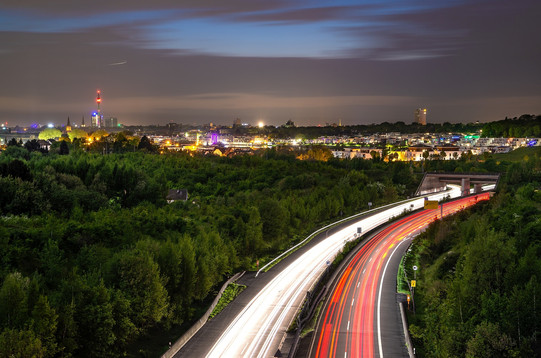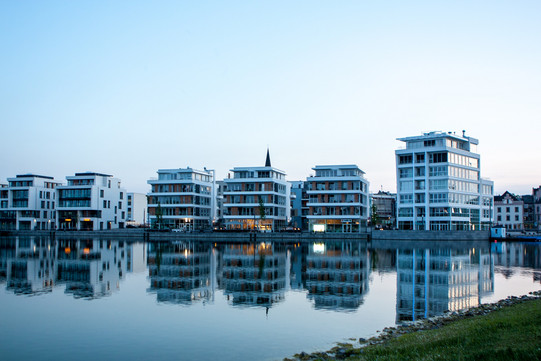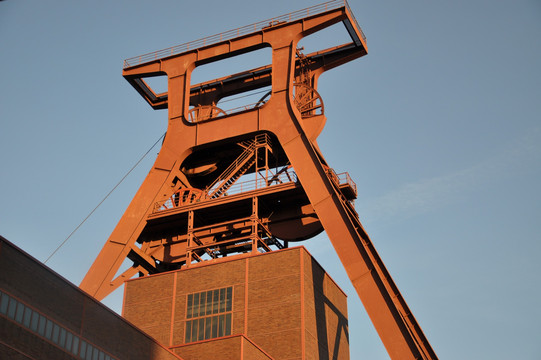Campus Life
TU Dortmund University
TU Dortmund University is part of the structural change and inseparably linked to its city: In 2018, the university celebrated its 50th anniversary. Founded in 1968 in the course of an education reform, TU Dortmund sees itself as a young, modern, and practice-oriented university in the heart of the Ruhr region, where 35,000 students, 300 professors, and 6,200 staff members learn, teach, and research in a total of 17 faculties.
In addition to the natural and engineering sciences, the social sciences and humanities form the second fixed component of university research and teaching at TU Dortmund University. The building at Emil-Figge-Straße 50 houses a wide range of humanities and social science subjects, including philosophy, political science, Protestant and Catholic theology, journalism and the educational sciences. This enables a promising exchange between the different topics and disciplines - and a view beyond the horizon of one's own field of study.
If you want to change not only the discipline but also the city from time to time, no problem: Since March 2007, TU Dortmund University has been a member of the University Alliance Ruhr (UAR) and, therefore, offers its students the opportunity also to attend lectures at Ruhr University Bochum and at University of Duisburg-Essen flexibly and free of charge thanks to the Germany Semester Ticket.
For further information about Campus life, click here.
Region "Ruhrgebiet"



"High Technology, Modern Art and Slow Food" meets "Mining, Beer and Ball Sports" - anyone traveling to the Ruhr area for the first time usually has particular images in mind. But those who stay longer will quickly realize that the Ruhr area has more to offer than workers' housing estates, beer breweries, and soccer stadiums.
From Duisburg and Oberhausen to Essen and Bochum and Dortmund - in Germany's largest conurbation, more than five million people live together. A dense car and rail network connects 53 cities, which merge almost unnoticed into one another - just like in one big metropolis. With the Semesterticket NRW/VRR, it is possible to get to know the region in all its facets.
"Structural change" is the keyword of recent years. Art and culture play an essential role. In 2010, the entire region was even elected European Capital of Culture. From the Schauspielhaus Bochum, one of Germany's largest and most renowned theaters, to the Konzerthaus Dortmund, which was named one of Europe's 20 best concert halls; from the disused Zollverein coal mine in Essen, which today serves as a reminder of the metropolis' history with the Ruhr Museum, to the Gasometer in Oberhausen, which is now an exhibition venue: the region is home to and a meeting place for artists and art lovers.
Those who prefer to spend their leisure time in the countryside will be amazed by the many excursion destinations and sailing opportunities between the Ruhr and Emscher rivers. Alongside Lake Hengstey and Lake Kemnader, Lake Phoenix in southeast Dortmund, which was only flooded in the spring of 2011, is the latest example of a local recreation area close to the city center.

Contact
Don't hesitate to get in touch with us if you have any questions regarding your studies.
You are always welcome during office hours. We also offer virtual office hours upon request.

